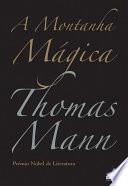Obras
Thomas Mann Frases famosas
Citações de vida de Thomas Mann
“O interesse pela doença e pela morte é apenas outra expressão do interesse pela vida.”
A Montanha Mágica
Variante: Todo o interesse na doença e na morte é, em verdade, apenas uma outra expressão de nosso interesse na vida.
Tonio Kroeger
Citações de felicidade de Thomas Mann
Thomas Mann frases e citações
“A palavra, por mais contraditória que seja, preserva o contacto: o silêncio isola-o.”
Variante: A fala é a civilização em si. A palavra, mesmo a mais contraditória palavra, preserva o contacto - é o silêncio que isola.
Thomas Mann: Frases em inglês
“Every reasonable human being should be a moderate Socialist.”
As quoted in The New York Times (18 June 1950); also in Thomas Mann: A Critical Study (1971) by R. J. Hollingdale, Ch. 2
Reflections of a Non-Political Man [Betrachtungen eines Unpolitischen] (1918)
Contexto: The important thing for me, then, is not the "work," but my life. Life is not the means for the achievement of an esthetic ideal of perfection; on the contrary, the work is an ethical symbol of life.
Fonte: The Magic Mountain (1924), Ch. 4
Contexto: Writing well was almost the same as thinking well, and thinking well was the next thing to acting well. All moral discipline, all moral perfection derived from the soul of literature, from the soul of human dignity, which was the moving spirit of both humanity and politics. Yes, they were all one, one and the same force, one and the same idea, and all of them could be comprehended in one single word... The word was — civilization!
Fonte: The Beloved Returns (1939), Ch. 7
Contexto: Hold fast the time! Guard it, watch over it, every hour, every minute! Unregarded it slips away, like a lizard, smooth, slippery, faithless, a pixy wife. Hold every moment sacred. Give each clarity and meaning, each the weight of thine awareness, each its true and due fulfillment.
"Early Sorrow" in Tellers of Tales : 100 Short Stories from the United States, England, France, Russia and Germany edited by William Somerset Maugham (1939), p. 884
Speech at the US Library of Congress (29 May 1945); published as "Germany and the Germans" ["Deutschland und die Deutschen"] in Die Neue Rundschau [Stockholm] (October 1945), p. 58, as translated by Helen T. Lowe-Porter
Freud and the Future (1937)
“A writer is somebody for whom writing is more difficult than it is for other people.”
Fonte: Essays of Three Decades (1942)
Fonte: The Magic Mountain (1924), Ch. 1
Contexto: Space, like time, engenders forgetfulness; but it does so by setting us bodily free from our surroundings and giving us back our primitive, unattached state. Yes, it can even, in the twinkling of an eye, make something like a vagabond of the pedant and Philistine. Time, we say, is Lethe; but change of air is a similar draught, and, if it works less thoroughly, does so more quickly.
Fonte: The Magic Mountain (1924), Ch. 1
Contexto: Space, like time, engenders forgetfulness; but it does so by setting us bodily free from our surroundings and giving us back our primitive, unattached state. Yes, it can even, in the twinkling of an eye, make something like a vagabond of the pedant and Philistine. Time, we say, is Lethe; but change of air is a similar draught, and, if it works less thoroughly, does so more quickly.
Letter from Naples, Italy to Otto Grautoff (1896); as quoted in A Gorgon's Mask: The Mother in Thomas Mann's Fiction (2005) by Lewis A. Lawson, p. 34
Contexto: I think of my suffering, of the problem of my suffering. What am I suffering from? From knowledge — is it going to destroy me? What am I suffering from? From sexuality — is it going to destroy me? How I hate it, this knowledge which forces even art to join it! How I hate it, this sensuality, which claims everything fine and good is its consequence and effect. Alas, it is the poison that lurks in everything fine and good! — How am I to free myself of knowledge? By religion? How am I to free myself of sexuality? By eating rice?
“Analysis can be a very unappetizing affair, as much so as death.”
Fonte: The Magic Mountain (1924), Ch. 5
Contexto: Analysis as an instrument of enlightenment and civilization is good, in so far as it shatters absurd convictions, acts as a solvent upon natural prejudices, and undermines authority; good, in other words, in that it sets free, refines, humanizes, makes slaves ripe for freedom. But it is bad, very bad, in so far as it stands in the way of action, cannot shape the vital forces, maims life at its roots. Analysis can be a very unappetizing affair, as much so as death.
“For the sake of goodness and love, man shall let death have no sovereignty over his thoughts.”
Fonte: The Magic Mountain (1924), Ch. 6
Contexto: I will keep faith with death in my heart, yet will remember that faith with death and the dead is only wickedness and dark voluptuousness and enmity against humankind, if it is given power over our thought and contemplation. For the sake of goodness and love, man shall let death have no sovereignty over his thoughts. And with that, I wake up.
“Hold fast the time! Guard it, watch over it, every hour, every minute!”
Fonte: The Beloved Returns (1939), Ch. 7
Contexto: Hold fast the time! Guard it, watch over it, every hour, every minute! Unregarded it slips away, like a lizard, smooth, slippery, faithless, a pixy wife. Hold every moment sacred. Give each clarity and meaning, each the weight of thine awareness, each its true and due fulfillment.
On German fascism, in "An Appeal to Reason" ["Deutsche Ansprache. Ein Appell an die Vernunft"] in Berliner Tageblatt (18 October 1930); as translated by Helen T. Lowe-Porter in Order of the Day, Political Essays and Speeches of Two Decades (1942), p. 57
Contexto: This fantastic state of mind, of a humanity that has outrun its ideas, is matched by a political scene in the grotesque style, with Salvation Army methods, hallelujahs and bell-ringing and dervishlike repetition of monotonous catchwords, until everybody foams at the mouth. Fanaticism turns into a means of salvation, enthusiasm into epileptic ecstasy, politics becomes an opiate for the masses, a proletarian eschatology; and reason veils her face.
“The body, love, death, these three are just one.”
Hans Castorp to Chauchat, in French, Ch. 5
The Magic Mountain (1924)
Contexto: Rough translation of this passage written in French: The body, love, death, these three are just one. For the body, this is the disease and exquisite delight, and this that does die, yes, they are carnal both of them, love and death, and thus their terror and their great magic!
Buddenbrooks [Buddenbrooks: Verfall einer Familie, Roman] (1901). Pt 7, Ch. 6
Contexto: It is as though something had begun to slip – as though I haven’t the firm grip I had on events. – What is success? It is an inner, an indescribable force, resourcefulness, power of vision; a consciousness that I am, by my mere existence, exerting pressure on the movement of life about me. It is my belief in the adaptability of life to my own ends. Fortune and success lie within ourselves. We must hold them firmly – deep within us. For as soon as something begins to slip, to relax, to get tired, within us, then everything without us will rebel and struggle to withdraw from our influence. One thing follows another, blow after blow – and the man is finished.
Freud and the Future (1937)
Contexto: The myth is the foundation of life; it is the timeless schema, the pious formula into which life flows when it reproduces its traits out of the unconscious. Certainly when a writer has acquired the habit of regarding life as mythical and typical there comes a curious heightening of his artistic temper, a new refreshment to his perceiving and shaping powers, which otherwise occurs much later in life; for while in the life of the human race the mythical is an early and primitive stage, in the life of the individual it is a late and mature one.
Speech, "The War and the Future" (1940); published in Order of the Day (1942)
Contexto: It is a strange fact that freedom and equality, the two basic ideas of democracy, are to some extent contradictory. Logically considered, freedom and equality are mutually exclusive, just as society and the individual are mutually exclusive.
Fonte: The Magic Mountain (1924), Ch. 7
Contexto: We, when we sow the seeds of doubt deeper than the most up-to-date and modish free-thought has ever dreamed of doing, we well know what we are about. Only out of radical skepsis, out of moral chaos, can the Absolute spring, the anointed Terror of which the time has need.
“The same is true of the passive qualities, patience under suffering, even pleasure in ill usage.”
Fonte: The Beloved Returns (1939), Ch. 7
Contexto: Cruelty is one of the chief ingredients of love, and divided about equally between the sexes: cruelty of lust, ingratitude, callousness, maltreatment, domination. The same is true of the passive qualities, patience under suffering, even pleasure in ill usage.
“Passionate — that means to live for the sake of living.”
The Magic Mountain (1924)
Contexto: Passionate — that means to live for the sake of living. But one knows that you all live for the sake of experience. Passion, that is self-forgetfulness. But what you all want is self-enrichment. C'est ça. You don't realize what revolting egoism it is, and that one day it will make you the enemies of the human race.
“Irony, forsooth! Guard yourself, Engineer, from the sort of irony that thrives up here”
Fonte: The Magic Mountain (1924), Ch. 5
Contexto: Irony, forsooth! Guard yourself, Engineer, from the sort of irony that thrives up here; guard yourself altogether from taking on their mental attitude! Where irony is not a direct and classic device of oratory, not for a moment equivocal to a healthy mind, it makes for depravity, it becomes a drawback to civilization, an unclean traffic with the forces of reaction, vice and materialism.
Fonte: Tristan (1902), Ch. 10
Contexto: It had been a moving, tranquil apotheosis, immersed in the transfiguring sunset glow of decline and decay and extinction. An old family, already grown too weary and too noble for life and action, had reached the end of its history, and its last utterances were sounds of music: a few violin notes, full of the sad insight which is ripeness for death.
Fonte: Tonio Kröger (1903), Ch. 9, as translated by Bayard Quincy Morgan
Variant translation: But my deepest and most secret love belongs to the fair-haired and the blue-eyed, the bright children of life, the happy, the charming and the ordinary.
Ch. 9, as translated by David Luke
Contexto: What I have done is nothing, not much — as good as nothing. I shall do better things, Lisaveta — this is a promise. While I am writing, the sea's roar is coming up to me, and I close my eyes. I am looking into an unborn and shapeless world that longs to be called to life and order, I am looking into a throng of phantoms of human forms which beckon me to conjure them and set them free: some of them tragic, some of them ridiculous, and some that are both at once — and to these I am very devoted. But my deepest and most secret love belongs to the blond and blue-eyed, the bright-spirited living ones, the happy, amiable, and commonplace.
Do not speak lightly of this love, Lisaveta; it is good and fruitful. There is longing in it and melancholy envy, and a tiny bit of contempt, and an unalloyed chaste blissfulness.


